If you’re the pet parent of a furry family member who’s just undergone surgery, you may be wondering what to expect in terms of post-operative care. At Eagle Animal Hospital in Kansas City, we want to ensure our patients have a smooth and comfortable recovery process, so we’ve put together this guide to help you understand what to expect. Keep reading to learn more, and be sure to visit us online to explore the pet surgery procedures we offer, including TPLO surgery, laparoscopic surgery, and more.
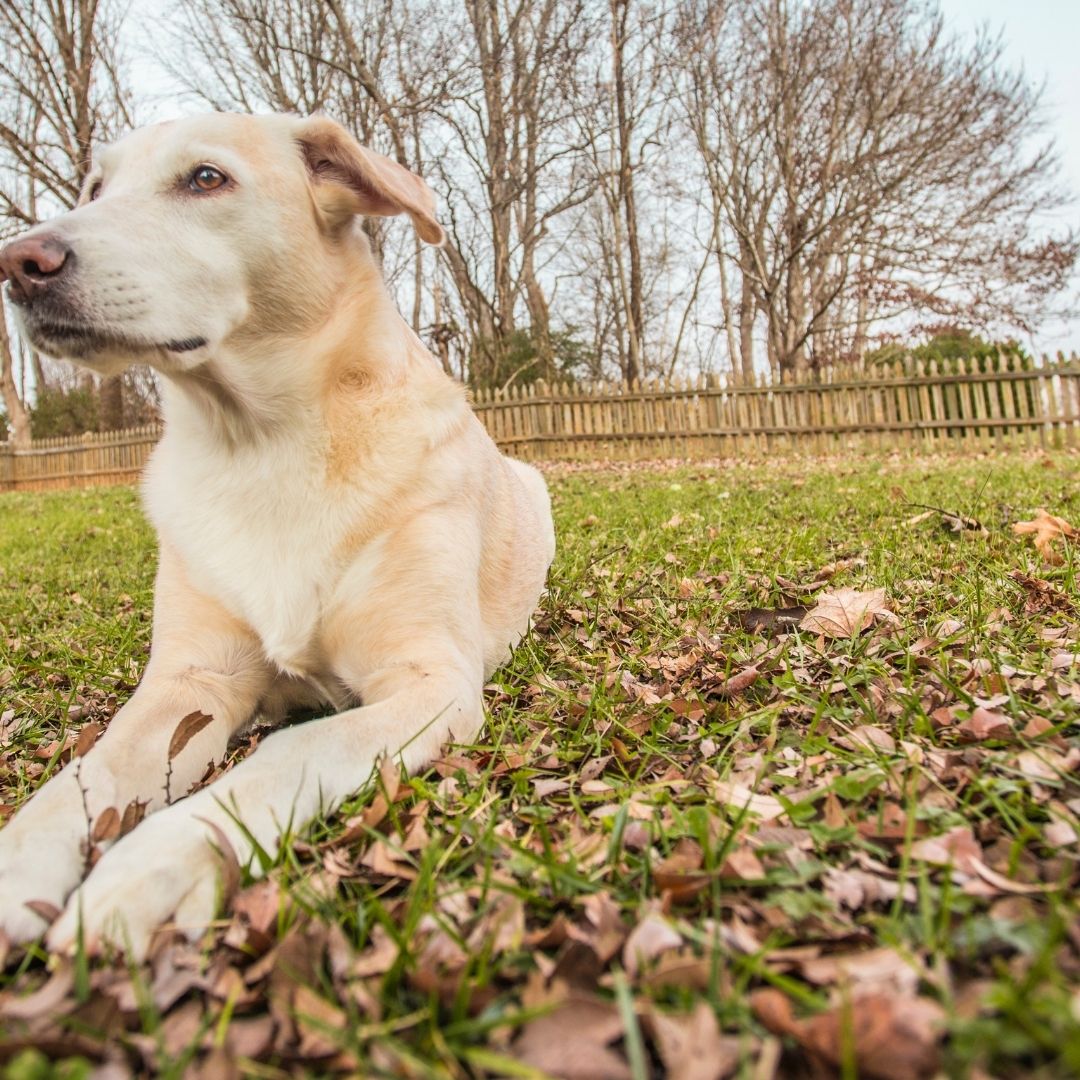
Recovery Time
After your pet’s surgery, they will need some time to recover. How long this takes varies and depends on the type of surgery they had. For example, a neuter or spay procedure is typically less invasive than something like orthopedic surgery. For routine surgeries, we recommend that you plan for two to four weeks of recovery time, and for more complex surgeries, we recommend planning on six weeks to four months of recovery time.
During this time, your pet will need to take it easy, and they may sleep more than usual and have reduced energy levels. That said, it’s important to not overdo it with exercise or activity, as this can put unnecessary strain on their healing body.
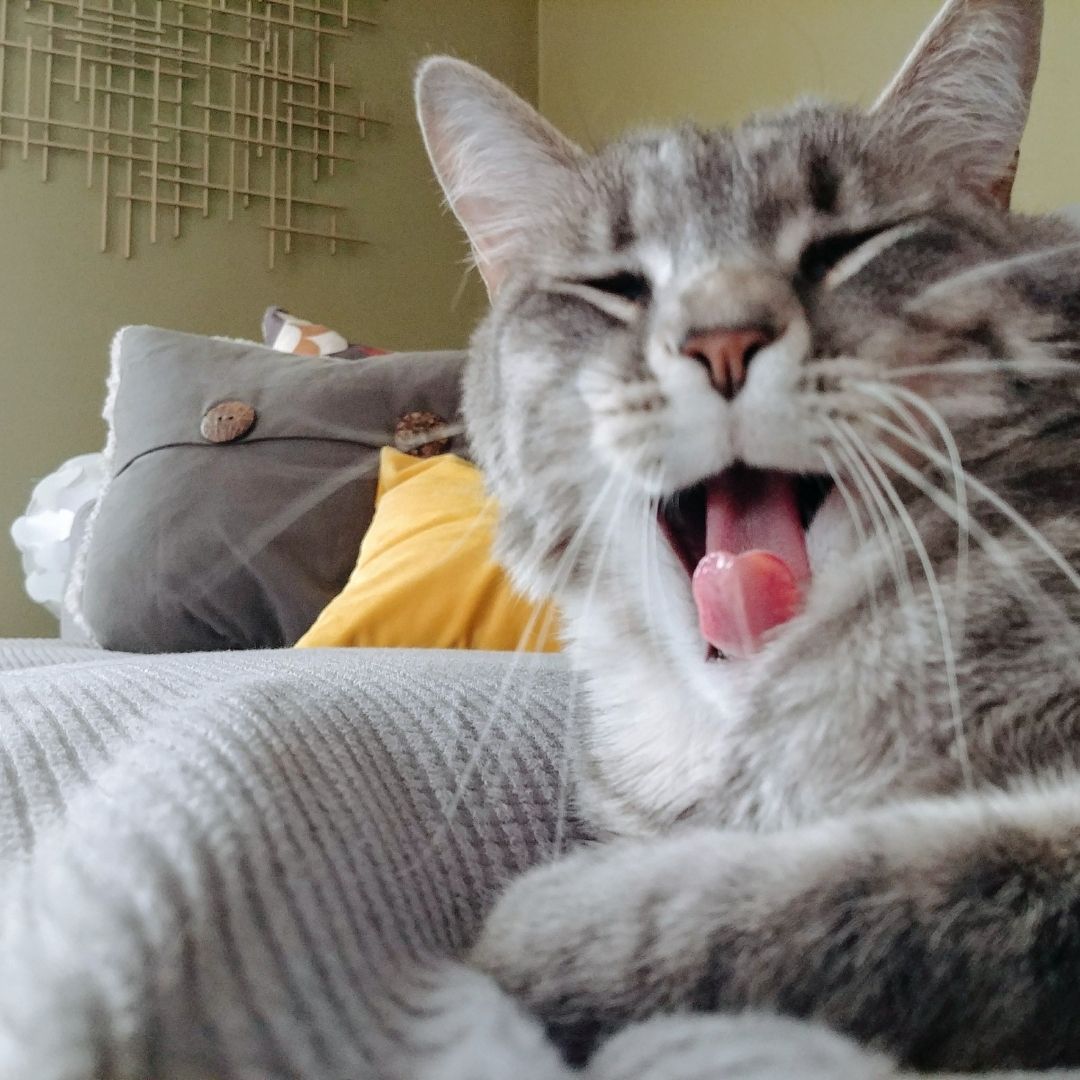
Post-Surgical Sleepiness
It’s normal for your pet to be tired and sleepy after surgery. The anesthesia can take a little while to wear off, so don’t be alarmed if they seem groggy and out of it at first. Give them time to rest and relax, and they’ll soon be back to their normal selves. We recommend creating a clean, quiet, and comfortable space where they can rest away from other pets and distractions, and where they won’t have to go up and down staircases.
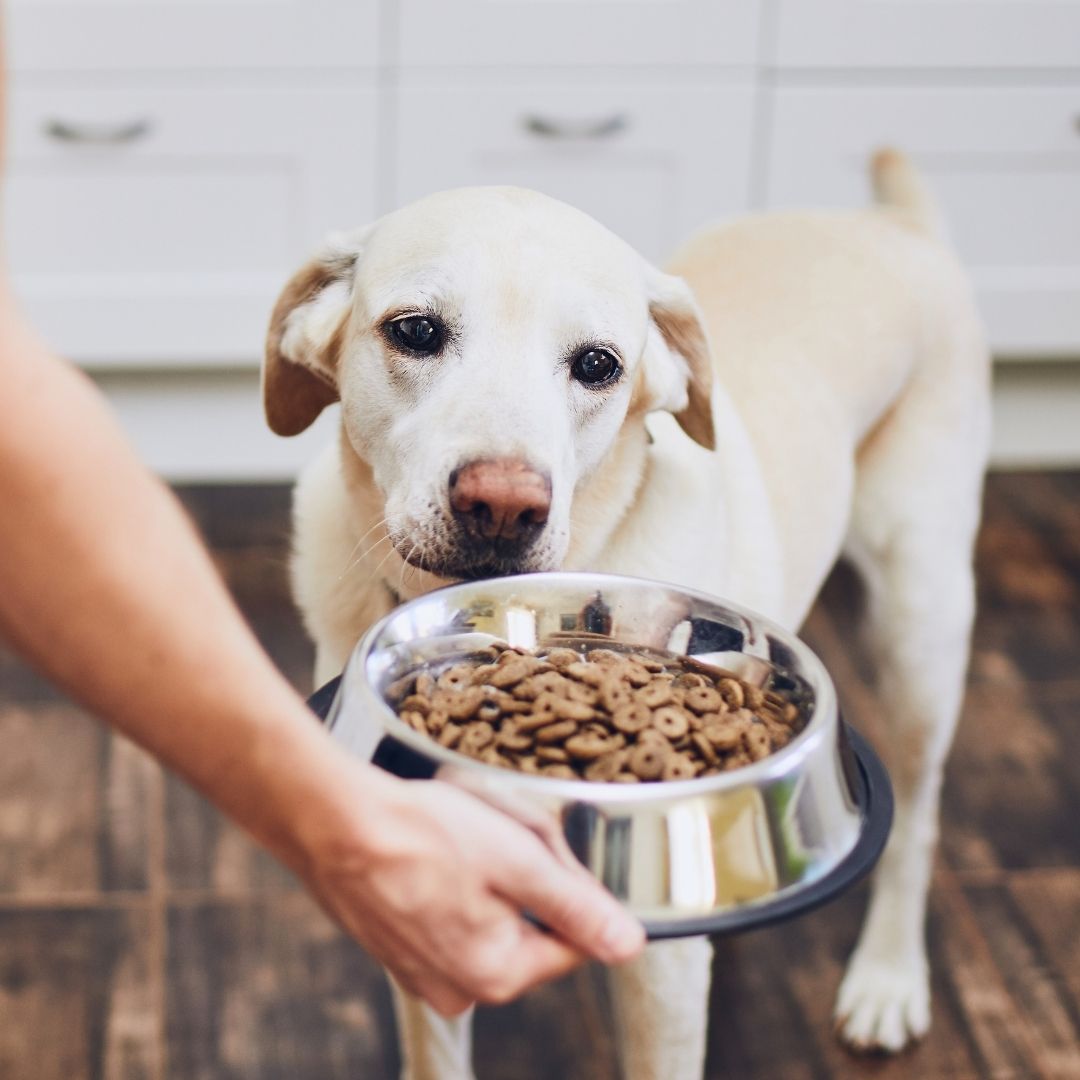
Reduced Appetite
Your pet may not have much of an appetite immediately after surgery. This is to be expected, as their body is using energy to heal. That being said, it’s important they eat and drink plenty of water. We recommend starting with smaller, more frequent meals and slowly increasing the amount of food as they start to feel better. If they won’t eat or drink anything, contact your vet right away.
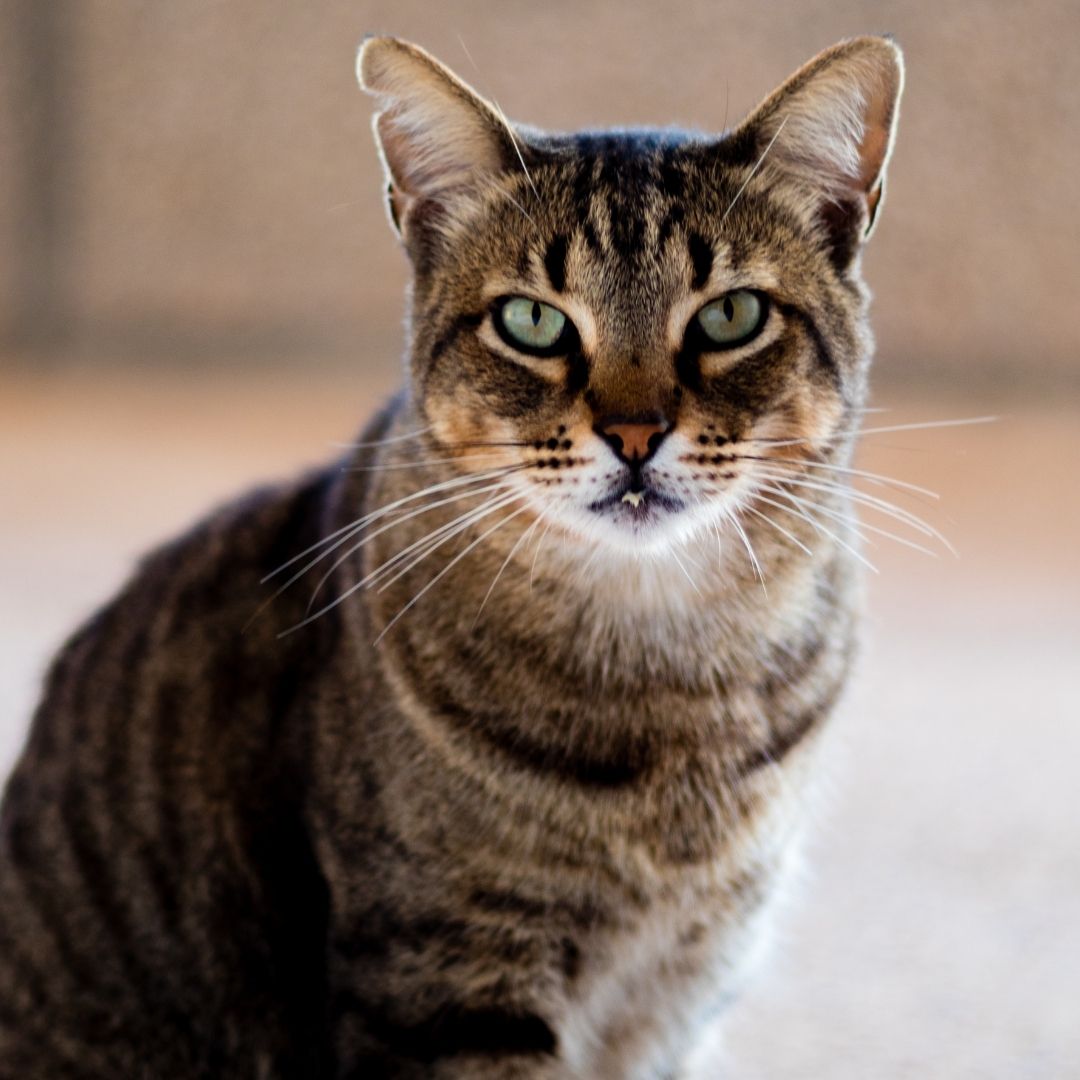
Irregular Bowel Movements
It’s common for your pet’s bowel movements to be irregular after surgery. They may have a softer stool or they may not go as frequently. This can be due to the pain medication they’re taking or simply because their system is adjusting to the changes in their body. If you’re concerned, please give us a call and we’ll be happy to advise you on the next steps.
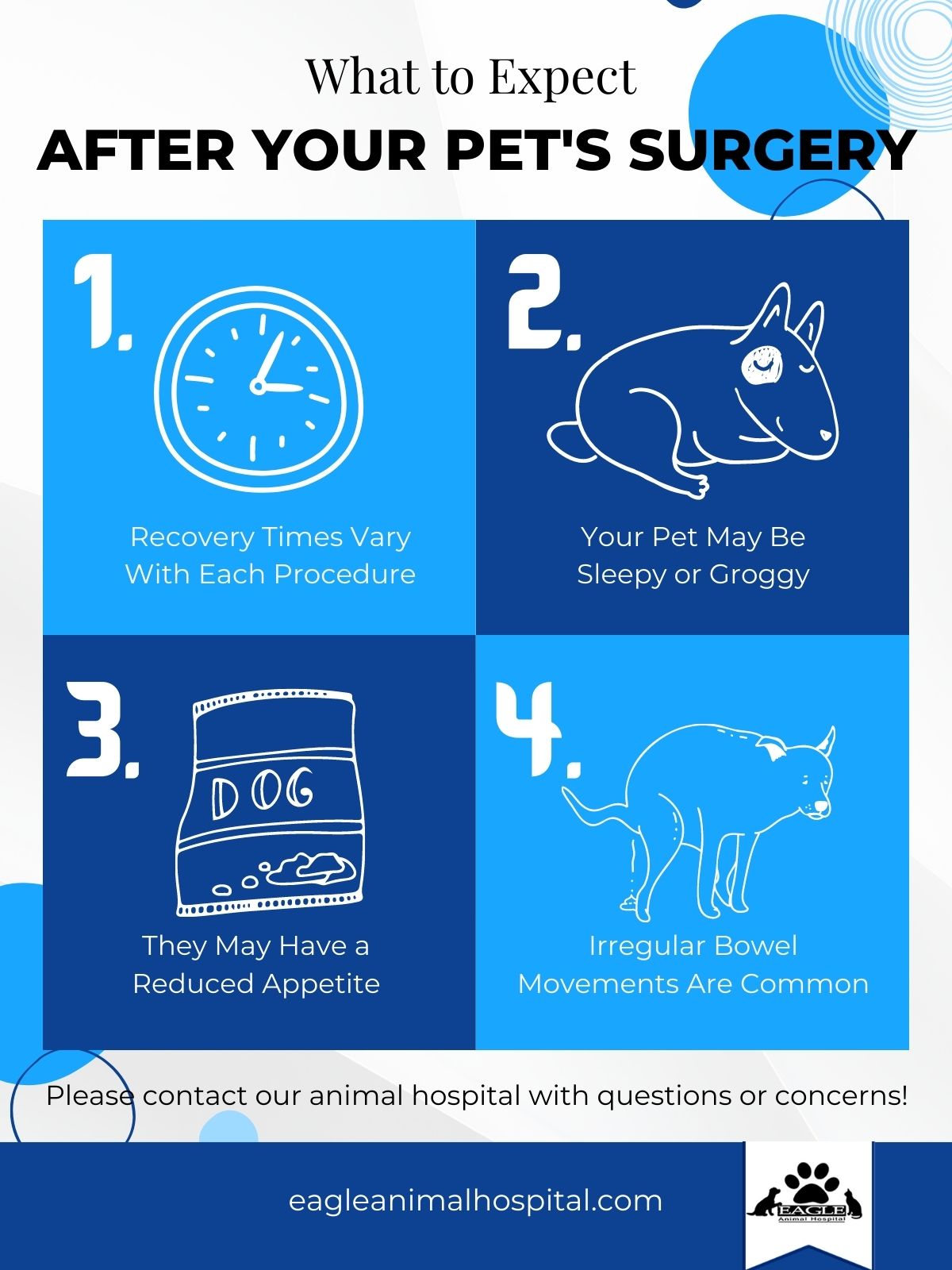
These are just some of the things to expect after your pet’s surgery. Your veterinarian will provide you with post-operative care instructions specific to your pet and the type of surgery they had, along with plenty of helpful resources to help your furry family member heal efficiently after surgery. Contact our Client Care team at Eagle Animal Hospital with any questions or concerns, or to schedule an appointment with your Kansas City veterinarian.
